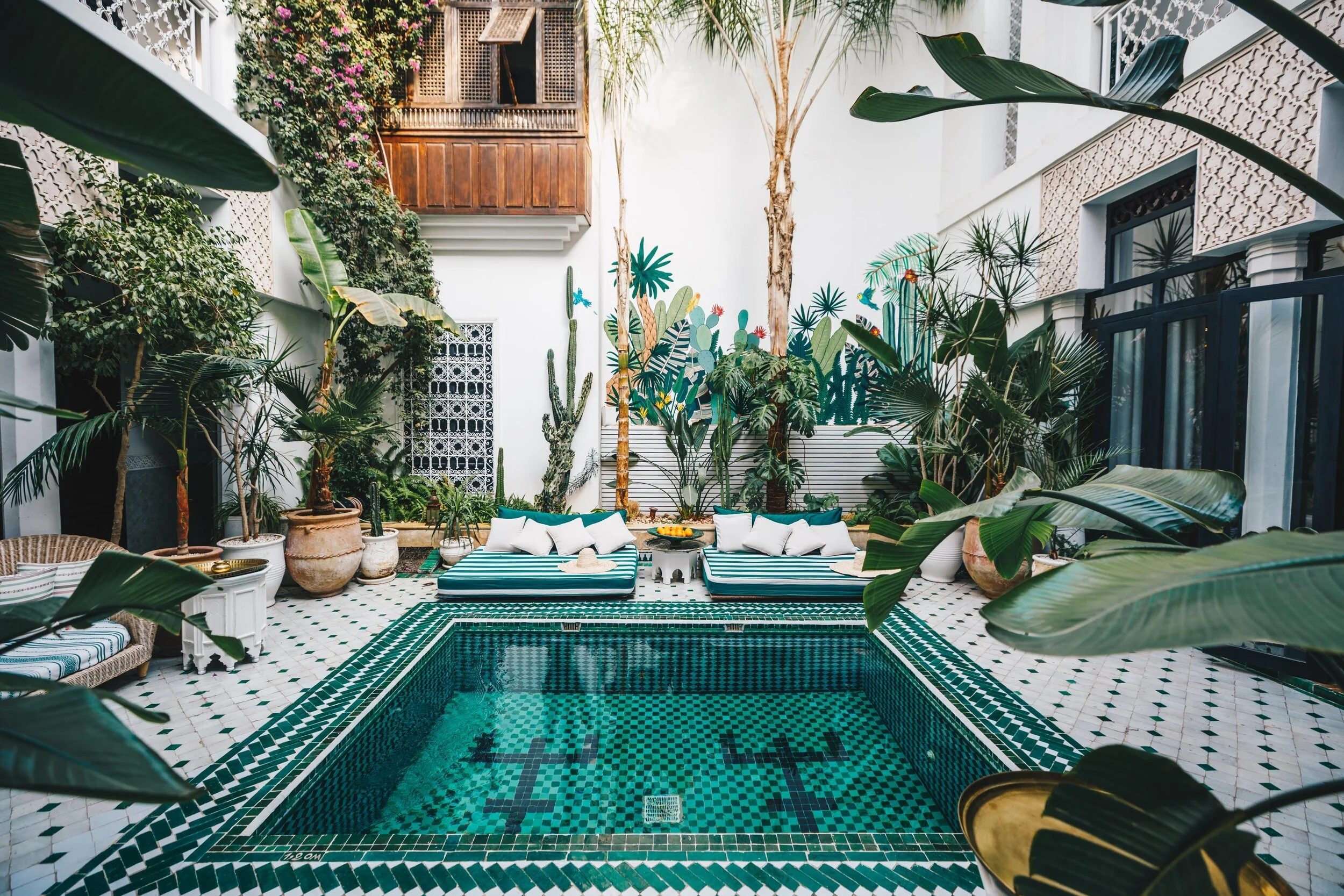Beyond Amenities: What's Really Driving Luxury Millennial and Gen Z Hospitality Decisions in 2025
Discover the evolving motivators influencing luxury millennial and Gen Z hospitality consumers in 2025, with data-driven insights and actionable strategies for hospitality marketers looking to capture these high-value segments.
The landscape of luxury hospitality continues to transform as millennials enter their prime earning years and Gen Z gains increasing market influence. These digitally-native generations are redefining what luxury means in the hospitality context, prioritizing experiences and values over traditional status symbols and amenities. For hospitality marketers targeting these affluent segments, understanding these shifting motivations is essential for developing effective engagement strategies.
This analysis examines current data on the core motivators driving luxury millennial and Gen Z hospitality decisions in 2025, providing actionable insights for marketing professionals.
The Evolving Definition of Luxury Among Younger Generations
Experiential Authenticity Prioritization
Both millennials and Gen Z luxury travelers demonstrate strong preference for authentic experiences over traditional luxury markers. According to Deloitte's 2025 Luxury Consumer Insights Report, 76% of luxury millennial and Gen Z travelers rank "authentic local experiences" as their top consideration when selecting accommodations, compared to just 43% citing traditional luxury amenities like turndown service or premium toiletries (Source: Deloitte Luxury Consumer Insights, February 2025).
This fundamental shift requires hospitality brands to rethink their value proposition, emphasizing connection to place and culture over isolated opulence.
Value-Based Decision Making
Despite their spending power, these generations apply sophisticated value assessment to luxury purchases. The American Express Luxury Travel Trends Report (March 2025) found that 82% of millennial luxury travelers and 87% of Gen Z luxury travelers research price comparisons across at least three platforms before booking, even for high-end experiences. The same report noted that these segments are willing to pay an average 35% premium for experiences they perceive as truly unique and aligned with their values.
Digital Integration Expectations
The technology expectations of these demographics extend far beyond basic Wi-Fi. According to Oracle Hospitality's Next-Generation Guest Experience Study (January 2025), 91% of luxury travelers under 40 expect seamless digital experiences throughout their stay, with 73% reporting they would likely switch accommodations based on perceived technological sophistication. The study further revealed that 68% expect AI-enhanced personalization in their guest experience.
Key Motivational Drivers for Luxury Millennial and Gen Z Travelers
Sustainability as a Non-Negotiable Factor
Environmental and social responsibility has transitioned from preference to requirement for luxury young consumers. The Booking.com Sustainable Travel Report 2025 found that 84% of luxury millennial and Gen Z travelers consider sustainability credentials a "must-have" rather than a "nice-to-have" when selecting luxury accommodations, with 61% willing to pay an additional 20-30% for properties with verified sustainability practices.
McKinsey's Luxury Hospitality Outlook (April 2025) reports that properties with recognized sustainability certifications saw 24% higher bookings from under-40 luxury travelers compared to non-certified competitors with similar amenities and price points.
Community Connection Opportunities
These generations seek meaningful engagement with local communities rather than isolation from them. According to Skift's 2025 Luxury Travel Intentions Survey, 79% of millennial and Gen Z luxury travelers rated "opportunities to meaningfully connect with local culture and community" as "extremely important" in their accommodation decisions.
Hyatt's Global Luxury Guest Insights study (February 2025) revealed that luxury properties offering structured community engagement programs saw 31% higher satisfaction scores among under-40 guests compared to those without such offerings.
Wellness Integration Beyond Spas
The concept of wellness has expanded dramatically for these segments. The Global Wellness Institute's Luxury Hospitality Trend Report (March 2025) found that 87% of millennial and 92% of Gen Z luxury travelers expect wellness options that extend beyond traditional spa services, including sleep optimization, mental wellness support, and advanced fitness offerings.
Properties with comprehensive wellness programs saw 28% higher revenue per available room (RevPAR) from the under-40 luxury segment compared to those with traditional spa-only wellness offerings, according to STR's Luxury Segment Analysis (Q1 2025).
Personalization That Respects Privacy
These generations expect sophisticated personalization that enhances their experience without feeling invasive. Accenture's Luxury Consumer Technology Report (January 2025) found that 88% of millennial and Gen Z luxury travelers want personalized experiences, but 73% expressed concerns about how their data is collected and used.
The report further revealed that properties using transparent opt-in personalization approaches saw 41% higher guest satisfaction scores among privacy-conscious luxury younger travelers compared to those using more opaque data collection methods.
Strategic Approaches for Capturing Luxury Millennial & Gen Z Guests
Narrative-Driven Marketing Strategies
These generations respond strongly to storytelling that connects with their values and aspirations. Research from Twitter's Luxury Brand Engagement Study (March 2025) indicates that luxury hospitality content featuring authentic storytelling elements generates 3.7x higher engagement rates among under-40 luxury consumers compared to traditional amenity-focused content.
Effective approaches include:
— Highlighting the human stories behind your property and experiences
— Showcasing genuine guest experiences through carefully curated user-generated content
— Developing content that positions the traveler as protagonist rather than spectator
Technological Innovation with Purpose
Technology deployment should enhance the guest experience rather than serving as mere novelty. According to PwC's Digital Luxury Experience Report (February 2025), 77% of millennial and Gen Z luxury travelers viewed technology as most valuable when it removed friction points or enhanced personalization in their experience.
The Hospitality Technology Innovation Survey (March 2025) found that properties integrating technology in guest-centered ways saw Net Promoter Scores 18 points higher among under-40 luxury guests compared to properties implementing technology without clear guest benefits.
Social Responsibility Integration
Beyond environmental sustainability, these generations expect luxury brands to demonstrate social consciousness. The Marriott Luxury Brand Social Impact Study (January 2025) found that 72% of millennial and 81% of Gen Z luxury travelers research a property's community impact before booking.
Properties with transparent social impact initiatives saw 22% higher direct booking rates from under-40 luxury travelers compared to competitors without visible social programs, according to data from SiteMinder's Direct Booking Index (Q1 2025).
Culinary Experience Evolution
Food and beverage experiences have become central decision factors for these demographics. The National Restaurant Association's Luxury Dining Trends Report (April 2025) found that 83% of millennial and Gen Z luxury travelers research dining options before selecting accommodations, with 67% indicating they would choose a property specifically for its culinary offerings.
According to Four Seasons' Global Luxury Guest Survey (March 2025), properties offering interactive culinary experiences such as chef-taught classes or curated tasting journeys saw 29% higher F&B revenue from under-40 luxury guests compared to those with traditional fine dining options alone.
Implementation Strategy Framework
Immediate Priorities (30-60 Days)
Conduct Generational Value Assessment
Review your current offerings and messaging through the lens of millennial and Gen Z luxury value systems. Cornell University's Luxury Hospitality Report (February 2025) found that properties conducting formal generational value assessments achieved 26% higher booking conversion rates from target demographics after implementing recommended changes.
Develop Transparent Sustainability Communication
Audit and enhance communication around existing sustainability initiatives. According to Booking.com's Sustainable Luxury Report (March 2025), 66% of properties had sustainability practices already in place but failed to effectively communicate them to potential guests, missing key conversion opportunities.
Enhance Digital Touchpoint Integration
Ensure seamless connectivity across the digital guest journey from discovery to post-stay engagement. Google's Luxury Travel Path to Purchase Study (January 2025) found that luxury travelers under 40 interact with an average of 23 digital touchpoints before booking, making integration essential.
Medium-Term Strategy Development (3-6 Months)
Community Connection Program Creation
Develop structured opportunities for guests to meaningfully engage with local communities and cultures. Properties implementing such programs saw average-stay duration increase by 1.7 nights among millennial and Gen Z luxury travelers, according to Virtuoso's Luxury Travel Trends Report (April 2025).
Wellness Program Expansion
Evolve wellness offerings beyond traditional spa services to include mental wellness, sleep optimization, and integrated fitness experiences. The Global Wellness Summit's Hospitality Forecast (February 2025) reported that properties with expanded wellness concepts generated 34% higher ancillary revenue from under-40 luxury guests compared to traditional luxury properties.
Content Ecosystem Development
Create a cohesive content strategy across channels that emphasizes authentic storytelling and value alignment. According to Facebook IQ's Luxury Marketing Effectiveness Study (March 2025), brands with consistent narrative-driven content across platforms saw 47% higher engagement rates among luxury millennial and Gen Z audiences compared to brands with fragmented content approaches.
Conclusion: Adapting to the Redefined Luxury Landscape
The fundamental motivators driving luxury millennial and Gen Z hospitality decisions have permanently shifted from traditional status and extravagance toward authenticity, value alignment, and meaningful experiences. Properties that successfully adapt to these evolving expectations will capture disproportionate market share in these high-value segments.
By implementing strategies that authentically address these core motivators – sustainability, community connection, purposeful technology, and expanded wellness – hospitality marketers can effectively position their offerings to resonate with the values and aspirations of tomorrow's dominant luxury consumers.
For hospitality brands, the opportunity lies not merely in cosmetic updates to traditional luxury, but in fundamentally reimagining what luxury means through the lens of these influential generations.
For more insights on luxury hospitality trends and generational marketing strategies, subscribe to our weekly newsletter.
Note: This analysis reflects current market data as of April 2025. Ongoing generational and market shifts may require strategic reassessment.
Transform Your Luxury Hospitality Brand's Social Presence
At A2L Creative, we specialize in crafting bespoke social marketing strategies for luxury hospitality brands that truly understand the evolving values of today's affluent travelers and diners. Our data-driven approach transforms standard social media presence into compelling narratives that resonate deeply with millennial and Gen Z luxury consumers.
Unlike traditional agencies, we focus exclusively on the luxury hospitality sector, bringing specialized expertise that generic marketing firms simply cannot match. Our team of strategists have helped iconic properties across the globe to develop authentic voices that connect meaningfully with next-generation luxury travelers.

